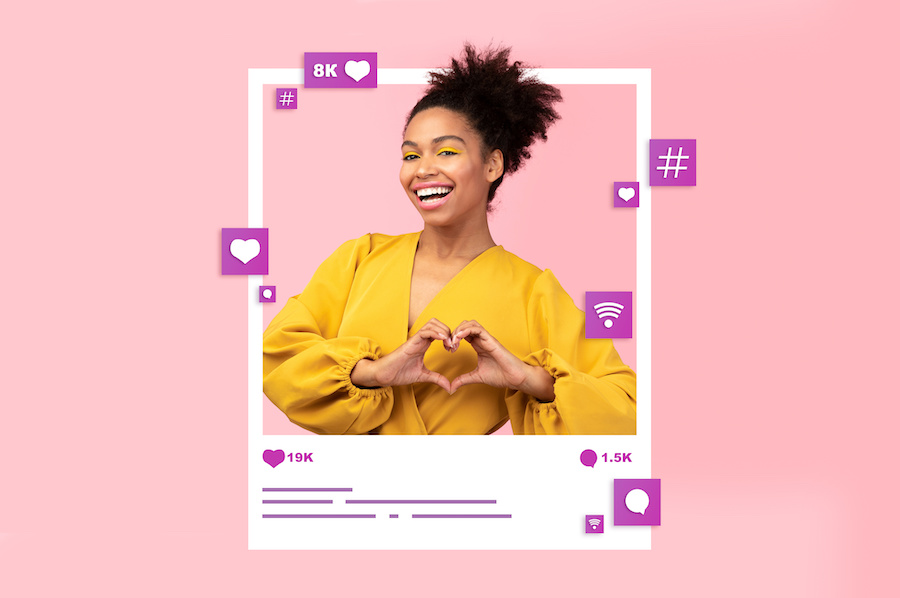Pakistan has seen a rise in the field of social media marketing during the past decade. With a population of over 43 million net surfers and increasing cellular penetration rates,...
Three vaccine doses key for protection against Omicron
Everything you need to know about our Company Read MoreOmicron is spreading more quickly than other variants. Based on the information available, World Health Organization (WHO) believes it is likely that Omicron will outpace the Delta variant where there is COVID-19 transmission in the community. So, for the health of the people, now there are three vaccine doses as key for protection against Omicron.
Media Feathers have gathered the latest specialist information about this new variant.
Some variants are considered variants of interest against Omicron. These variants could be more dangerous than the original coronavirus, but health authorities aren’t quite sure yet. They might have genetic markers that could
- change transmission
- diagnostics
- treatment
- the virus’s ability to evade the immune system
- they may be suspected to cause more severe diseases or increased transmissibility.
Symptoms for the new COVID Variant “Omicron” are given below.
- fever,
- cough,
- tiredness,
- loss of taste or smell.
Less common symptoms for the new COVID Variant “Omicron” are
- sore throat,
- headache,
- aches,
- pains,
- diarrhea,
- a rash on the skin,
- discolouration of fingers or toes
- red or irritated eyes.
Serious symptoms for the new COVID Variant “Omicron” are
- difficulty breathing or shortness of breath,
- loss of speech or mobility,
- confusion or chest pain.
Note: If anyone has any of these symptoms then he/she should urgently take the COVID test.
Previously, Two doses of a Covid vaccine are enough to stop you from catching the covid-19 variant. But now researchers have warned that three doses are required for this new variant called omicron.
Early analysis of UK Omicron and Delta cases showed the vaccines were less effective at stopping the new variant.
But a third booster prevents around 75% of people from getting any Covid symptoms.
Most of the 43 cases of the COVID-19 Omicron variant found in the United States were mild and occurred among vaccinated people, but boosters (3rd dose of vaccine) are effective against it.
Of the 42 people with cases, more than half were 18 to 39 years old, and 35 had been fully vaccinated. But only seven people had received a booster shot at least 2 weeks before becoming infected.
The Omicron variant has been found in 25 states.
Researchers point to two recent studies from Israel, published in The New England Journal of Medicine, that examined how well booster shots worked as key for protection against Omicron.
One study found that for those over the age of 50, boosters resulted in a 90% decrease in mortality from the Omicron variant, compared to people with only two doses.
Another study found a 20-fold decrease in severe disease across all age groups in those who had received their booster shots as key for protection against Omicron, compared to those with two doses.
The researcher’s report shows a 7-day average of 118,500 cases per day — an increase of 37% from the previous week. Hospitalizations for COVID-19 have increased by 16% to 7,400, and daily deaths are up 28% to 1,100.
Doctors encourage people to vaccinate their children and included a reminder that Omicron is still the dominant variant in the United States, accounting for 99% of COVID-19 cases.
To date, more than 50 million booster doses have been given in the United States, and 7 million children ages 5-11 have been vaccinated.
These vaccines are not only safe, but they’re highly effective in
- preventing severe disease,
- hospitalization,
- Decrease death ratio
The most important thing you can do is reduce your risk of exposure to the virus. To protect yourself and your loved ones, make sure to:
- Wear a mask that covers your nose and mouth. Make sure that your hands are clean when you put on and remove your mask.
- Keep a physical distance of at least 6 feet from others.
- Avoid the poorly ventilated area
- Don’t go in crowded spaces.
- Open windows to increase ventilation indoors.
- Wash your hands on a regular basis.
- When it’s your turn, get vaccinated.
- COVID-19 vaccines are safe and effective.
After the above-mentioned protection, every person has to increase their immune system as key for protection against Omicron through taking different vitamins and supplements that is important for their body. So, there are three different vitamins that everyone has to take for their immune system:
- Vitamin C is one of the biggest immune system boosters of all. In fact, a lack of vitamin C can even make you more prone to getting sick. Daily intake of vitamin C is essential for good health because your body doesn’t produce or store it.
- Vitamin E is a powerful antioxidant that helps the body fight off infection.
- Vitamin B6 is vital to supporting biochemical reactions in the immune system.
While vitamins and supplements can help fill in the gaps in your diet, the best way to load up on essential nutrients is to get them straight from food.
Your body absorbs and uses vitamins and nutrients better when they come from a dietary source. When it’s a vitamin or supplement, it’s often questionable how much you’re actually getting.
Because the supplement is regulated as foods, not as drugs, the Food and Drug Administration doesn’t evaluate the quality of supplements or assess their effects on the body.
Who can get a COVID-19 vaccine booster?
The CDC recommends a COVID-19 booster if you are:
- Age 18 or older and you received the Janssen-Johnson & Johnson vaccine at least two months ago
- Age 18 or older and you received both required doses of the Moderna vaccine at least five months ago (your booster will be a one-half dose)
- Age 12 or older and you received both required doses of the Pfizer-BioNTech vaccine at least five months ago (the Pfizer-BioNTech vaccine is the only vaccine and booster authorized for children and teens ages 12–17)
- The CDC recommends that you get vaccinated and boosted even if you previously had COVID-19 infection. Before getting a shot, be sure you have followed isolation and quarantine guidelines so you do not infect others, and discuss your COVID-19 history with the medical team.
What are COVID booster side effects?
After getting vaccinated for COVID-19, you might experience some temporary symptoms similar to those you might notice when you get a flu shot, such as a sore, swollen arm where you got the shot. You might run a fever and experience body aches, headaches and tiredness for a day or two. Chills, swollen lymph nodes can also occur.
These symptoms do not mean you are sick. They signal that your immune system is responding to the shots and building up protection against the coronavirus.
FAQ’s
Is it safe to mix vaccines for a third (booster) dose?
An mRNA COVID-19 vaccine, by Comirnaty (Pfizer-BioNTech) and Moderna, can be used for third doses and boosters in individuals 18 years of age and older. This is the recommendation whether you received AstraZeneca/COVISHIELD or an mRNA vaccine previously.
While OPH offers both mRNA vaccines in its community clinics, several factors are considered when deciding what brand, you will receive. You may not get to choose which mRNA brand you receive based on clinical assessment and eligibility factors. Currently, and in accordance with guidance from the National Advisory Committee on Immunization.







Leave a Reply